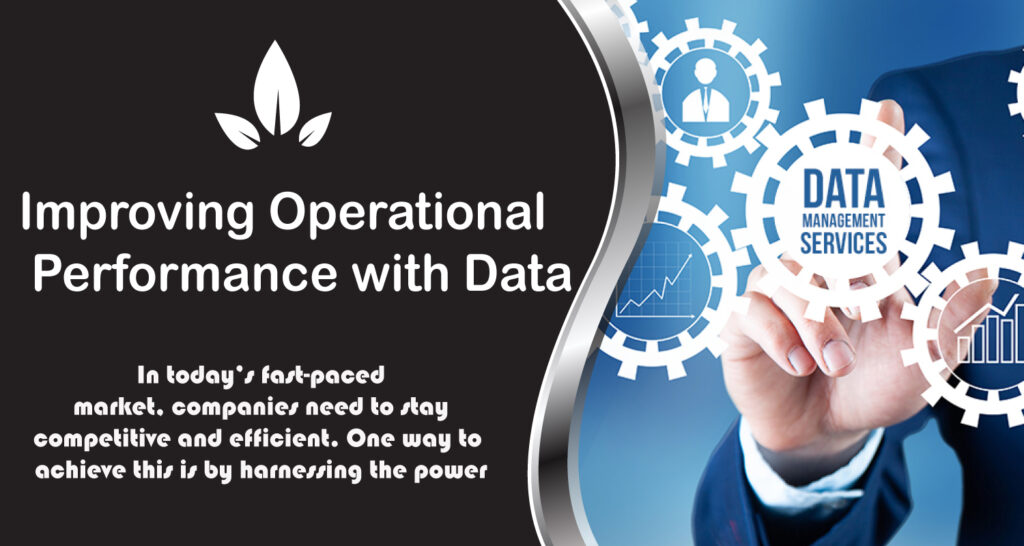In today’s fast-paced market, companies need to stay competitive and efficient. One way to achieve this is by harnessing the power of information and making informed decisions. Using advanced tools to convert information into actionable insights has become essential for streamlining processes, improving decision-making, and driving growth. As technology evolves, so do the tools available to optimize how companies operate, making it easier for them to monitor performance, manage finances, and stay agile.
Here’s how you can manage your business operations more effectively:
The Role of Data in Modern Business
Data has become a cornerstone of every successful company, acting as the backbone for strategic decisions and operational improvements. Gone are the days when decisions were made solely based on gut feelings or outdated information. Today, every piece of information, from customer feedback to operational processes, can be turned into valuable insights. These insights enable companies to stay ahead of market trends, improve customer service, and increase profitability. Businesses that use these insights can identify trends, improve workflows, and solve problems before they become significant challenges.
Leveraging Banking Tools for Business Performance
Managing finances effectively is a critical element of improving overall performance. Today’s financial tools allow companies to track and manage funds, streamline transactions, and make informed decisions on investments. Many online platforms offer advanced financial tools to help businesses keep track of their financial standing. Visit https://www.sofi.com/banking/ to learn more about how their tools integrate with other systems, making it easier to manage resources, reduce errors, and monitor financial health. This level of accessibility and insight allows businesses to stay agile and respond quickly to changing needs, ensuring that resources are allocated efficiently and performance is maximized.
Types of Data Analytics Used in Business
Incorporating various forms of analytics into company practices allows for a more well-rounded approach to decision-making. Descriptive analytics helps businesses understand what has happened by looking at historical data, while diagnostic analytics digs deeper into the reasons behind these trends. Predictive analytics forecasts future trends, helping companies anticipate and prepare for changes in the market. Finally, prescriptive analytics goes a step further, recommending the best course of action based on data-driven insights. By utilizing these types of analysis, companies can ensure they are on the right path to improving their overall performance and achieving long-term growth.
Using Data to Improve Customer Insights
Understanding customer preferences and behaviors is one of the most powerful ways to increase customer satisfaction and loyalty. Companies can analyze customer data to uncover valuable insights into what their customers need, how they interact with products or services, and where improvements can be made. By offering tailored experiences and solutions, businesses can provide better services, ultimately leading to a stronger customer base. This kind of analysis helps companies not only meet but exceed expectations, driving both satisfaction and repeat business.
Streamlining Operations with Data Analytics
Inefficiencies in day-to-day operations can result in wasted time, resources, and missed opportunities. By using information to pinpoint weak spots in processes, companies can make targeted improvements. Data-driven insights help identify bottlenecks, uncover underperforming areas, and highlight where processes can be optimized. From automating repetitive tasks to streamlining supply chains, companies that use data effectively can boost efficiency across every level. This optimization not only saves time but also reduces costs and drives productivity, leading to better overall results.
Predictive Analytics for Proactive Decision-Making
Predictive analytics uses historical data to forecast future trends, enabling companies to take a proactive approach to decision-making. By identifying potential challenges or opportunities before they arise, companies can avoid risks and capitalize on favorable conditions. For example, predictive models can help in inventory management by forecasting demand, ensuring that stock levels are optimized to meet future customer needs. Additionally, predictive insights can guide staffing decisions, marketing campaigns, and product development strategies, ensuring businesses stay one step ahead and make decisions with confidence.
Real-Time Data: A Game Changer for Operational Performance
Real-time information allows businesses to respond instantly to changes and adapt quickly to emerging trends. Whether it’s monitoring customer interactions, tracking inventory, or evaluating marketing campaigns, having immediate access to relevant data is a game-changer. Real-time analytics ensures that businesses can make decisions on the fly, without delays that could result in missed opportunities. For instance, a company can adjust its supply chain or pricing strategy in response to market shifts, maximizing the effectiveness of its actions and minimizing potential losses. This agility is critical in today’s fast-moving environment.
Enhancing Financial Performance Through Data
Financial management is essential to any organization’s success. By leveraging data, companies can gain a clearer picture of their financial standing and make informed decisions to improve profitability. Through detailed analysis, businesses can track expenses, analyze cash flow, and identify opportunities for cost-saving measures. Data-driven financial insights also help companies optimize their pricing strategies, reduce unnecessary expenditures, and allocate resources more effectively. These financial advantages directly contribute to healthier margins and greater long-term success.
Data Security and Privacy in Operational Analytics
With the increasing amount of information being collected, ensuring data security and protecting customer privacy are paramount. As companies adopt data analytics tools, they must also prioritize the protection of sensitive information. Businesses need to implement robust security measures to safeguard against breaches, fraud, and unauthorized access. This includes encrypting data, ensuring compliance with privacy regulations, and training employees on best practices for data protection. A strong commitment to data security helps maintain customer trust, avoids legal complications, and ensures the integrity of business operations.
Data has proven to be an indispensable resource for improving operational performance in today’s competitive business world. By harnessing the power of various types of analysis, companies can make informed decisions that streamline processes, boost profitability, and enhance customer experiences. The integration of tools like advanced banking platforms that manage finances seamlessly is another important step in maximizing efficiency. As data continues to shape the way businesses operate, adopting and mastering analytics will be key to staying ahead of the curve. By proactively using data, businesses can drive sustainable growth and stay competitive in a rapidly changing market.



